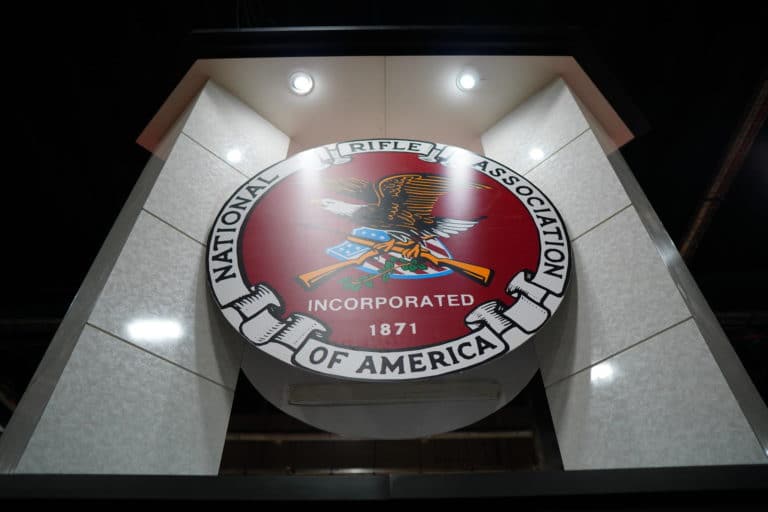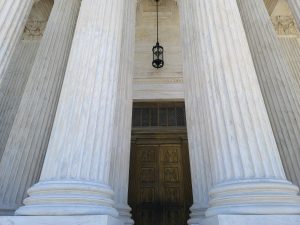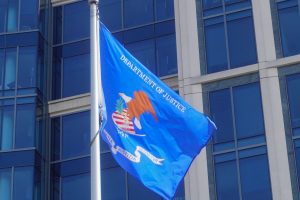The nation’s highest court will decide a new case brought by the National Rifle Association.
However, this one deals with the First Amendment rather than the Second. In NRA v. Vullo, the Supreme Court will rule on whether or not a New York official violated the gun-rights group’s rights when they warned financial companies not to do business with the group or other “gun promotion organizations” in a 2018 letter. Maria Vullo, the former Superintendent of the New York State Department of Financial Services, told the companies they should consider “reputational risks” when working with the NRA.
“Subject to compliance with applicable laws, the Department encourages its chartered and licensed financial institutions to continue evaluating and managing their risks, including reputational risks, that may arise from their dealings with the NRA or similar gun promotion organizations, if any, as well as continued assessment of compliance with their own codes of social responsibility,” Vullo wrote in the letter. “The Department encourages regulated institutions to review any relationships they have with the NRA or similar gun promotion organizations, and to take prompt actions to managing these risks and promote public health and safety.”
She also cited companies breaking off deals with the NRA in the wake of the Parkland shooting as an example of good corporate governance.
“There is a fair amount of precedent in the business world where firms have implemented measures in areas such as the environment, healthcare, and civil rights in fulfilling their corporate social responsibility,” she said. “The recent actions of a number of financial institutions that severed their ties with the NRA and have taken other actions after the AR-15 style rifle killed 17 people in the school in Parkland, Florida, is an example of such a precedent.”
The letter was sent at a time when New York was also taking action against financial companies that worked with the NRA. It fined the insurance company Chubb for underwriting concealed carry insurance offered by the gun group.
After news of Vullo’s letter was reported, the NRA filed suit against her. It claimed the state was perpetrating a “blacklisting campaign” over the group’s protected speech. The NRA said Vullo tried to intimidate the companies she regulated into not doing business with one of her political opponents. It received backing from an unlikely alley: the American Civil Liberties Union.
“If Cuomo can do this to the NRA, then conservative governors could have their financial regulators threaten banks and financial institutions that do business with any other group whose political views the governor opposes,” the group wrote in a brief supporting the NRA’s suit. “The First Amendment bars state officials from using their regulatory power to penalize groups merely because they promote disapproved ideas.”
Last September, a three-judge panel at the Second Circuit Court of Appeals reversed a lower court’s ruling in favor of the NRA. The panel found Vullo “acted reasonably and in good faith.”
“[W]e conclude that the NRA has failed to plausibly allege that Vullo ‘crossed the line ‘between attempts to convince and attempts to coerce,’” the court wrote. “Moreover, even assuming that Vullo’s actions and statements were somehow coercive, we conclude further that her conduct here–taking actions and making statements in her various capacities as regulator, enforcement official, policymaker, and representative of New York State–did not violate clearly established law.”
The NRA appealed that decision to the High Court, which will now have the final say on Vullo’s letter.
However, the Court did limit the scope of the case to some degree when it decided to take it up. The Court’s order said it would only consider the first of two questions the NRA argued were posed by the case. It will decide whether “[T]he First Amendment allow[s] a government regulator to threaten regulated entities with adverse regulatory actions if they do business with a controversial speaker, as a consequence of (a) the government’s own hostility to the speaker’s viewpoint or (b) a perceived ‘general backlash’ against the speaker’s advocacy.”
The Supreme Court decided not to address whether Vullo’s actions violated “a clearly established First Amendment right.”
UPDATE 11-03-2023 4:23 PM EASTERN: This story has been updated with more information about the case.






